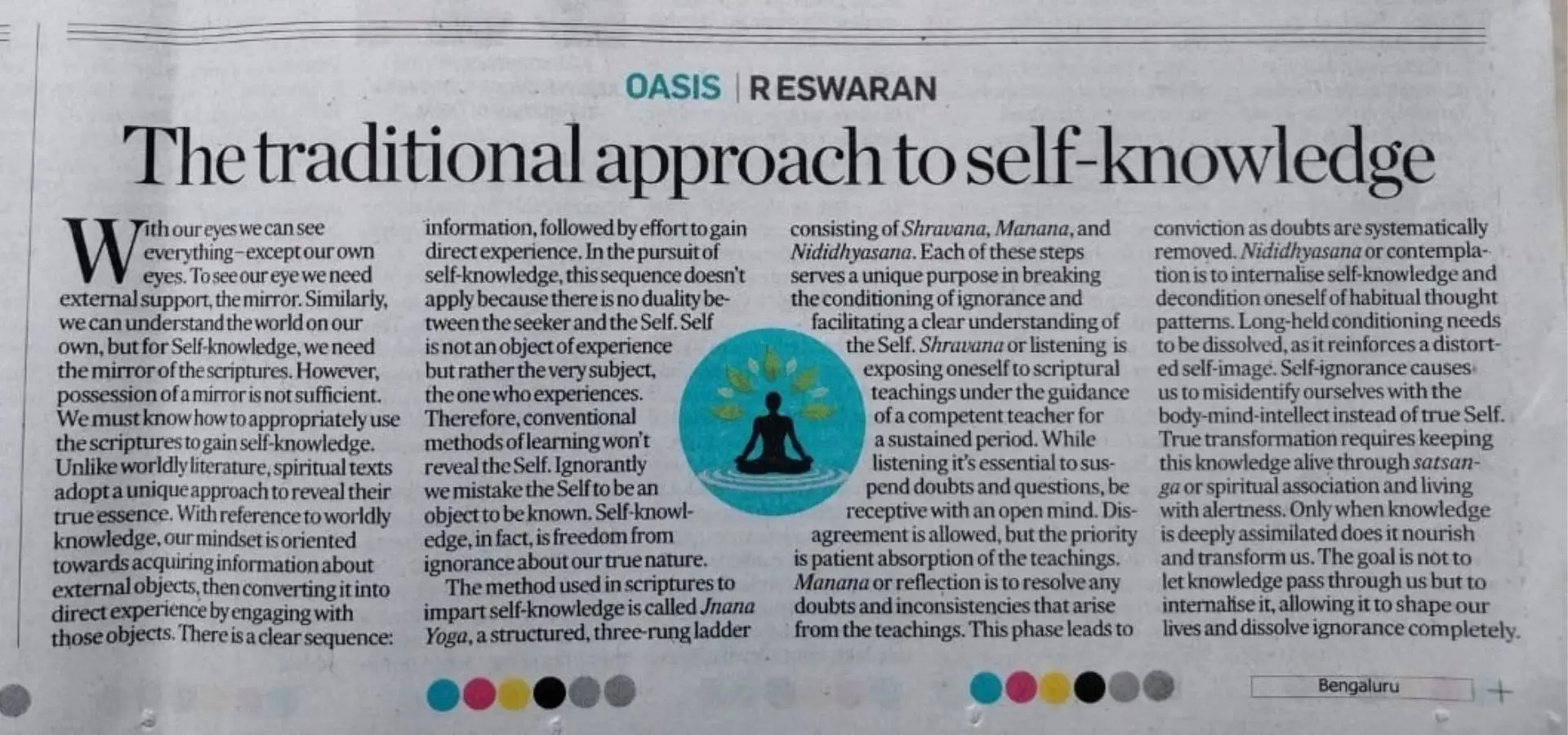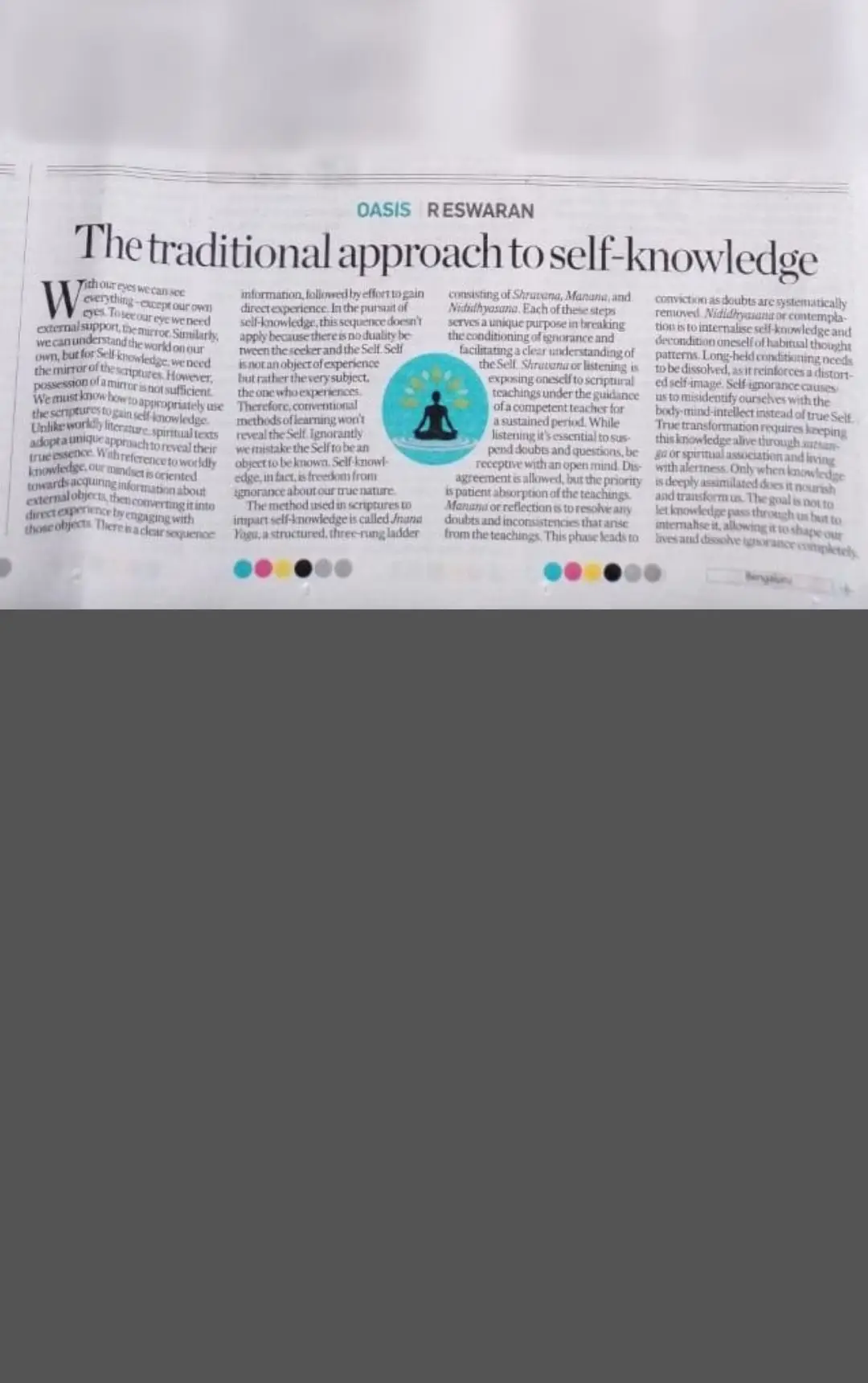

The Traditional Approach to Self-Knowledge
By R. Eswaran
Founder-Acharya of Vedanta Institute Bangalore
With our eyes we can see everything – except our own eyes. To see our eye we need external support, the mirror. Similarly, we can understand the world on our own, but for Self-knowledge, we need the mirror of the scriptures. However, possession of a mirror is not sufficient. We must know how to appropriately use the scriptures to gain self-knowledge. Unlike worldly literature, spiritual texts adopt a unique approach to reveal their true essence.
With reference to worldly knowledge, our mindset is oriented towards acquiring information about external objects, then converting it into direct experience by engaging with those objects. There is a clear sequence: information, followed by effort to gain direct experience. In the pursuit of self-knowledge, this sequence doesn’t apply because there is no duality between the seeker and the Self. Self is not an object of experience but rather the very subject, the experiencer itself. Therefore, conventional methods of learning won’t reveal the Self. Ignorantly we mistake the Self to be an object to be known. Self-knowledge, in fact, is freedom from ignorance about our true nature.
The method used in scriptures to impart self-knowledge is called Jnana Yoga, a structured, three rung ladder consisting of Shravana, Manana, and Nididhyasana. Each of these steps serves a unique purpose in breaking the conditioning of ignorance and facilitating a clear understanding of the Self. Shravana or listening / reading is exposing oneself to scriptural teachings under the guidance of a competent teacher for a sustained period. While listening it’s essential to suspend doubts and questions, be receptive with an open mind. Disagreement is allowed, but the priority is patient absorption of the teachings. Manana or Reflection is to resolve any doubts and inconsistencies that arise from the teachings. Here consciously bring up questions and seek clarification. This phase leads to conviction as doubts are systematically removed, and one arrives at a doubt-free understanding of the teachings. Nididhyasana or Contemplation is to internalize self-knowledge and decondition oneself of habitual thought patterns. Long-held conditioning needs to be dissolved, as it reinforces a distorted self-image. Self-ignorance causes us to misidentify ourselves with the body-mind-intellect instead of true Self.
True transformation requires keeping this knowledge alive through regular satsanga or spiritual association and living with alertness. Only when knowledge is deeply assimilated, like fully digested food, does it nourish and transform us. The goal is not to let knowledge pass through us without effect but to internalize it, allowing it to shape our lives and dissolve ignorance completely.
